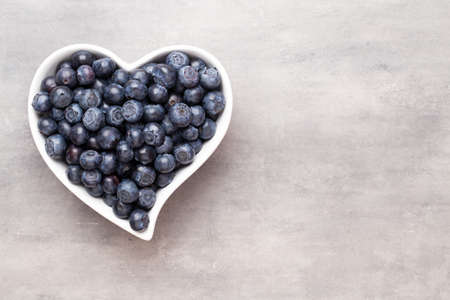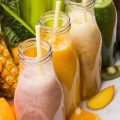Introduction: The Buzz Around British Detox Trends
In recent years, detox trends have swept across the UK, fuelled by an ever-growing wave of influencers, health gurus, and wellness brands dominating social media. From green juice cleanses to “skinny teas” and digital detox challenges, these trends have woven themselves into the fabric of modern British culture. But what makes detoxing so captivating for Britons? The allure often lies in promises of renewed energy, radiant skin, and a quick fix for the excesses of daily life—especially after festive periods or long weekends filled with classic British indulgences like fish and chips or afternoon tea. Social media amplifies these messages, presenting detoxes as both fashionable and essential for a balanced lifestyle.
Yet, beneath the glossy Instagram posts and viral TikTok hacks lies a growing concern: Are these popular British detox trends really backed by science, or are they simply myths cleverly marketed to a wellness-hungry audience? As we embark on this myth-busting journey, we’ll blend modern scientific insights with holistic wisdom rooted in traditions such as Chinese medicine, which views health as the harmony between body and mind. This approach will help us unravel the truths behind the hype, empowering you to make informed choices that nurture both physical vitality and emotional wellbeing in the uniquely British context.
2. The Truth About Juice Cleanses
Juice cleanses have become a staple in British wellness circles, often touted on social media as the ultimate way to ‘detox’ and reset the body. But where did this trend originate, and how much truth lies behind the colourful claims? Let’s explore both Western scientific views and traditional Chinese medicine (TCM) perspectives to separate fact from fiction.
Origins and Popularity in the UK
The idea of consuming only fruit and vegetable juices for several days can be traced back to early 20th-century naturopathy, later popularised by American health enthusiasts. In recent years, juice cleanses have gained traction across the UK, with London-based juice bars and influencers promoting bespoke cleanse packages promising everything from radiant skin to rapid weight loss. The appeal is clear: a quick fix for modern lifestyles that crave convenience and visible results.
Common Misconceptions: Western vs. TCM Viewpoints
| Myth | Western Science | Traditional Chinese Medicine |
|---|---|---|
| Juice cleanses detoxify the body | The liver and kidneys naturally detoxify; no evidence supports enhanced ‘detox’ from juicing. | The body’s Qi flow is essential for cleansing; overconsumption of cold juices may disrupt digestive fire (Spleen Qi). |
| Juicing leads to long-term weight loss | Initial weight loss is mostly water; sustainable fat loss requires balanced nutrition and activity. | Rapid dietary changes can weaken digestion (Spleen/Stomach), leading to fatigue or dampness accumulation. |
| All nutrients are retained in juice form | Juicing removes fibre, reducing satiety and digestive benefits; some vitamins degrade quickly after juicing. | Lack of fibre may impair regular bowel movements, affecting internal balance (Yin-Yang harmony). |
A Holistic Approach: Harmony Over Extremes
While sipping fresh juices can provide a welcome vitamin boost, both Western dietitians and TCM practitioners caution against extreme cleansing regimes. Instead, the focus should be on supporting the body’s natural processes with seasonal whole foods and mindful eating habits. In line with British cultural values of moderation and self-care, seeking balance—rather than short-lived fixes—leads to more sustainable wellbeing.

3. Do Tea Detoxes Really Work?
The British have long cherished their tea, with the ritual of afternoon tea being woven into the fabric of daily life for generations. Whether it’s a classic builder’s brew or a delicate Earl Grey, sharing a cuppa is about comfort, connection, and tradition. In recent years, however, a new trend has swept across social media: detox teas. Promoted by influencers and wellness brands alike, these herbal blends promise everything from rapid weight loss to glowing skin and improved digestion. But do they truly deliver on these lofty claims?
On platforms like Instagram and TikTok, slick adverts showcase detox teas as the magic bullet for modern woes—bloating, fatigue, and sluggish metabolism. The appeal is understandable: in a fast-paced society, who wouldn’t want a simple solution in the form of a soothing drink? Yet, it’s vital to look beyond the marketing and ask whether these trendy blends are really any different from the humble cup of English Breakfast or chamomile enjoyed by generations past.
From a natural health perspective—and drawing on traditional Chinese medicine (TCM) principles—the body’s own detoxification systems are remarkably effective when supported through balanced living. TCM views herbs like dandelion or ginger as gentle aids to harmonise digestion and support liver function, but not as quick fixes. The concept of “detox” in TCM focuses on restoring balance (yin-yang) and promoting smooth Qi flow, rather than purging toxins overnight.
Scientific evidence offers further clarity. While some ingredients in detox teas—such as senna or green tea—may temporarily relieve bloating or increase bowel movements, these effects are short-lived and can even lead to dehydration or electrolyte imbalance if misused. NHS guidance remains clear: there is no miracle tea that can replace healthy eating habits, sufficient hydration, and regular movement.
In essence, while a warming mug of herbal tea can be a comforting part of your daily self-care routine, it isn’t a cure-all for modern lifestyle challenges. Embracing the mindful British approach to tea—savouring each sip as a moment of calm—aligns more closely with both ancient wisdom and contemporary science than chasing quick-fix detox trends online.
4. Fast Fixes vs. Long-Term Balance
In recent years, British social media has seen a surge in “detox” challenges that promise rapid results—whether it’s a seven-day juice cleanse or a weekend herbal tea purge. These trends are marketed as quick solutions for feeling lighter, brighter, or healthier. However, both British cultural wisdom and the principles of Chinese medicine remind us that true wellbeing is not achieved overnight but cultivated through steady, sustainable practices.
The British value of “keeping a stiff upper lip” and taking things in stride aligns closely with the Chinese philosophy of maintaining inner harmony over time. Rather than seeking instant transformation, both cultures appreciate the benefits of gentle, ongoing adjustments to support health and vitality.
| Quick Detox Challenges | Sustainable Wellbeing Approaches |
|---|---|
| Short-term juice cleanses Elimination diets for a week Extreme fasting Social media “reset” trends |
Balanced meals with seasonal produce Moderate exercise like walking or tai chi Consistent sleep routines Mindful self-care rituals |
The promise of an immediate ‘reset’ may be tempting, especially when shared by influencers online. Yet, Chinese medicine teaches that sudden purges can disrupt the body’s natural balance (Yin-Yang), while British traditions often favour moderation and gradual change. Instead of chasing fast fixes, embracing a lifestyle centred on balance—through nourishing food, regular movement, mindful rest, and emotional harmony—not only honours our bodies but also fosters lasting vitality. In essence, whether sipping on nettle tea after a countryside walk or practising qigong at dawn, the path to genuine detox is gentle and ongoing—a value deeply rooted in both British heritage and Eastern wisdom.
5. The Impact on Mind and Body
When exploring British detox trends circulating on social media, it’s essential to look beyond physical claims and consider the mental and emotional effects these practices may have. While many detox routines promise a quick fix, they often overlook the intricate relationship between mind and body—a principle deeply rooted in both traditional Chinese medicine and modern holistic approaches. The pressure to follow trending cleanses or restrictive regimens can foster anxiety, guilt, or even frustration if results are not immediate or sustainable.
The Emotional Toll of Detox Culture
Social media often amplifies unrealistic expectations, encouraging comparisons and self-judgment. This can create a cycle where individuals feel compelled to ‘detox’ not just their bodies but their emotions, sometimes leading to stress rather than relaxation. From a holistic perspective, emotional well-being is as vital as physical health. If a detox trend causes more worry than benefit, it may be time to reassess its value.
Cultivating Balance in Everyday Life
True detoxification, according to both Eastern wisdom and contemporary wellness research, involves gentle daily habits that support both body and mind. Instead of extreme diets or fads, consider regular movement—like a brisk walk in your local park—mindful eating with seasonal British produce, and simple breathing exercises. These small acts nourish your internal balance (what Chinese medicine calls ‘Qi’) and foster resilience against everyday stressors.
Practical Tips for Holistic Wellbeing
To cultivate genuine health: prioritise restful sleep, stay hydrated with herbal teas native to the UK such as nettle or chamomile, connect socially with friends for emotional upliftment, and take time for reflective practices like journaling or meditation. Remember, health is a journey—not a destination reached through fleeting trends. By tuning into your body’s natural rhythms and emotions, you can make empowered choices that support lasting wellbeing.
6. Conclusion: Finding True Wellness Beyond the Hype
As we reach the end of our journey through the myths and realities of British detox trends on social media, it becomes clear that genuine wellness cannot be achieved through fleeting fads or quick fixes. The British tradition offers us a rich heritage of moderation, reflection, and a deep respect for nature—values echoed in Eastern philosophies such as Traditional Chinese Medicine, which emphasises harmony between body and mind. Instead of chasing after every new detox craze trending online, let us take a more mindful approach to health. Consider incorporating time-honoured British practices like herbal teas, countryside walks, and balanced home-cooked meals, alongside Eastern techniques such as mindful breathing, gentle movement, and seasonal eating. True well-being arises when we listen to our bodies’ unique needs, nurture our mental and emotional health, and cultivate balance in our daily lives. By blending the wisdom of East and West, we can move beyond hype and find sustainable wellness that nourishes us from within.


